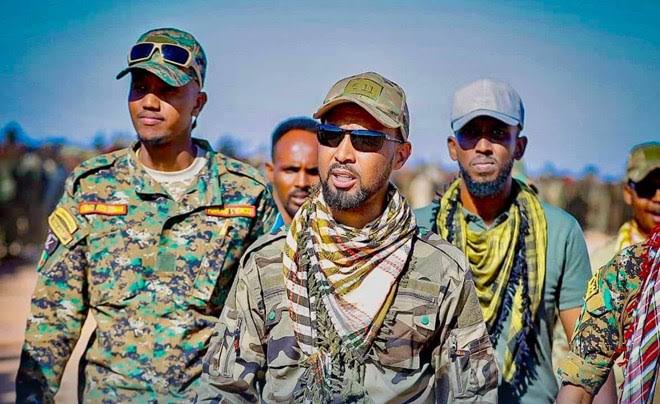Facebook Twitter (X) Instagram Somali Magazine - People's Magazine
The semi-autonomous Puntland region in northeastern Somalia is facing a critical juncture as violence linked to ISIS-affiliated armed groups escalates. A recent attack targeting Mohamed Baari Shire, the young Vice President of Parliament, has highlighted the ongoing challenges the region faces in maintaining security and stability while striving to improve the lives of its citizens.
On December 31, 2024, ISIS militants launched a coordinated assault in the Bari region, including suicide bombings and armed clashes, in an apparent attempt to destabilize Puntland’s political institutions. Local security forces successfully repelled the attack, but casualties were reported on both sides. Notably, the attackers included foreign fighters from Morocco, Tanzania, Yemen, and Libya, underscoring the transnational nature of the threat.
Since its emergence in Puntland in 2015, the self-proclaimed Islamic State has posed a persistent threat to regional stability. Its presence is complicated further by competition with the jihadist group al-Shabaab, both vying for control over strategic resources and trade routes along the Gulf of Aden. The conflict has strained Puntland’s security apparatus, which is tasked with safeguarding a population exhausted by years of political turmoil and extremist violence.
Mohamed Baari Shire has emerged as a prominent figure advocating for a new era of governance in Puntland, emphasizing development and stability. His leadership, particularly after surviving the recent assassination attempt, has garnered increased public support. However, the incident has also exposed the vulnerabilities of Puntland’s security landscape, further stressing the need for long-term solutions.
Beyond the immediate security challenges, Puntland faces deep-rooted socioeconomic issues contributing to instability. High unemployment rates, limited access to education, and inadequate healthcare services have created fertile ground for extremist recruitment, particularly among disillusioned youth. The Puntland government, in collaboration with organizations such as the Puntland Development Research Centre (PDRC), has launched initiatives focused on community dialogue, social inclusion, and infrastructure development. These programs aim to reduce vulnerability to radicalization by creating employment opportunities and improving living conditions.
Efforts to counter the ISIS threat have extended to large-scale military operations targeting the group’s operational bases. The Puntland government recently announced an offensive in the Alimiskat Mountains aimed at dismantling key ISIS hideouts. However, security experts caution that military action alone will not deliver lasting peace. A balanced approach combining security operations with developmental and political strategies remains essential for long-term stability.
Professor Sonkor Geyre, Director of the Heritage Institute for the Horn of Africa (HI4Horn), has emphasized the importance of closer cooperation between Puntland and Somalia’s federal government in combating the extremist threat. Geyre noted that strained relations between the two entities have hindered coordinated counterterrorism efforts, urging both sides to prioritize collective security over political differences.
Somalia’s federal government and Puntland have historically experienced tensions, particularly over resource management and regional autonomy. These tensions have often disrupted collaborative efforts on security matters, weakening the broader fight against groups like ISIS and al-Shabaab. The recent escalation of violence serves as a reminder that unified action and regional cooperation are vital in preventing extremist groups from exploiting political divides.
Puntland’s leadership faces a complex challenge: balancing military operations with developmental efforts while navigating political tensions with the federal government. The success of the current offensive in the Alimiskat Mountains will likely depend not only on military outcomes but also on the region’s ability to address root causes of radicalization through education, employment, and inclusive governance.
The international community’s role in supporting Puntland’s efforts against extremism is crucial. Effective collaboration between Puntland, the Somali federal government, and global partners could transform the region into a model of resilience and stability in the Horn of Africa.

